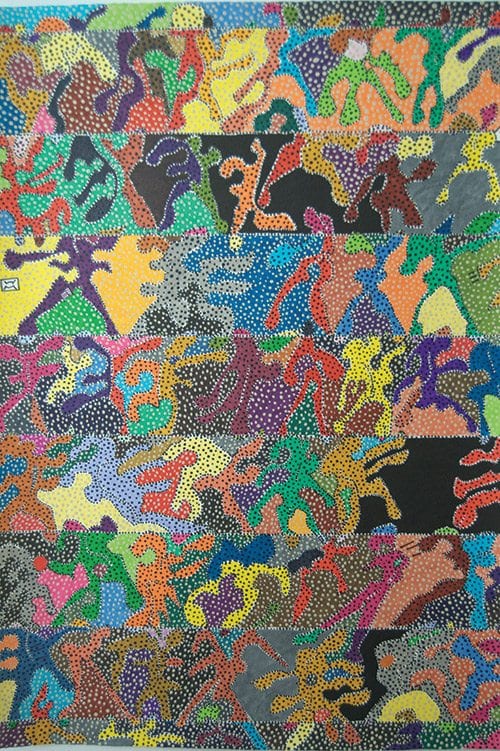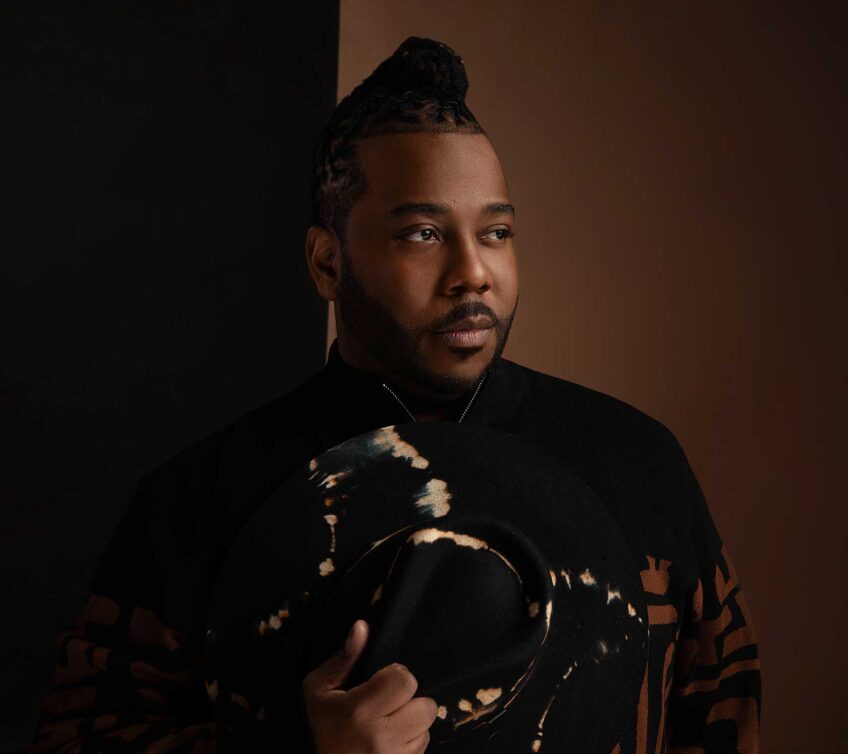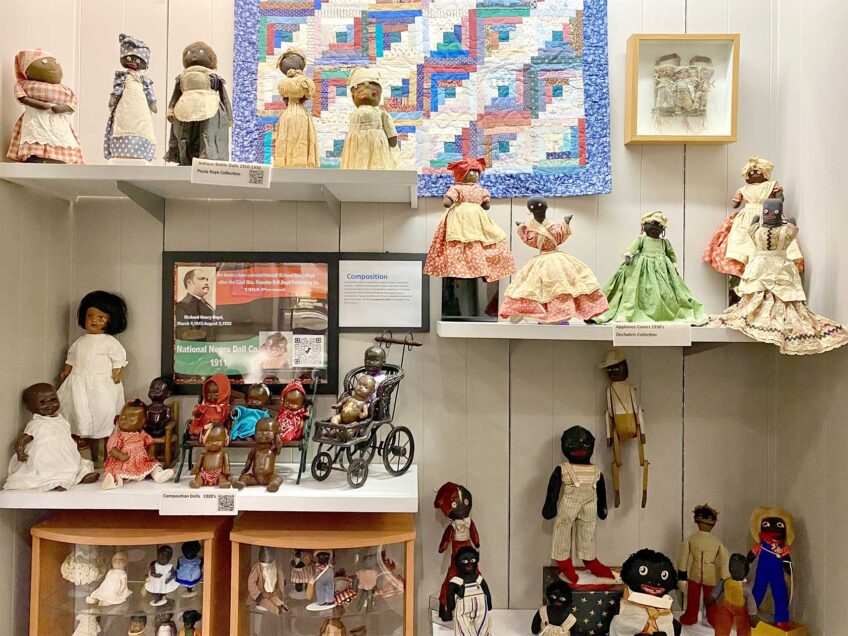ArtsEmerson hosted acclaimed author Walter Mosley in its Public Dialogue Series

From October 30 to November 8, ArtsEmerson in conjunction with Future Boston Alliance presented The Obsessive Residency with acclaimed novelist, playwright, screenwriter, and artist Walter Mosley, as part of its second Public Dialogue Series titled “Naming Ourselves: Provocative Conversations on Identity and Representation.” The residency was sponsored by the Fresh Sound Foundation.
Best known for his popular Easy Rawlins mystery series, Mosley has written more than 40 books over the course of his career in a variety of genres that have been translated into 23 languages. Mosley has also won numerous awards including an O. Henry Award in 1996, a Grammy in 2001 for “Best Album Notes” for the recording Richard Pryor’s “… And It’s Deep Too!” and a Lifetime Achievement Award from PEN America.
During Mosley’s residency, a variety of events were held at the Emerson/Paramount Center including play readings, a visual art exhibition titled “An Exploration of Walter Mosley’s Mind,” and film screenings based on two of Mosley’s books, “Always Outnumbered Always Outgunned” and “Devil in a Blue Dress.” In addition, there were public dialogues with the prolific author on the topics of the urban male and a second on the notion of race called “Interrogating Whiteness: Part 1” held on November 4.
The residency also launched the author’s autobiography, “The Graphomaniac’s Primer — A Semi-Surrealist Memoir,” which featured an array of Mosley’s portfolio of fiction, plays and visual art. Of his memoir, Mosley described it as “all hand done, there’s no printed moment anywhere in the book. The Grapho-maniac’s Primer, five or six essays filled with A, B, C, D, and on and on, lots and lots of drawings and a notion of the commitment to the written word and to the language. That’s my life, that’s what I do.”
In a recent conversation with the Banner, Mosley talked about the notion of race, his popular character Easy Rawlins and his upcoming projects.
In “Interrogating Whiteness,” one of the statements that struck me was “I can be at the same time invisible and yet profiled, counted and yet forgotten, imprisoned by circumstances and yet declared free by one of the great documents in political history.” In your opinion, why do we have this difficult time discussing and breaking down the barriers between us?
Walter Mosley: It’s what I was talking about that night. Not a whole lot but some push back from members of the audience that race was created during colonization. In Europe and Africa there had been no races. In North America there had been no races. There were tribes, there were cultures but there weren’t races. But then, when all of these people from Europe came and they had some traits in common, they decided that the red over here and the black over there and they, the dominant culture, would be called white, and Christian and male. And, so that was how it was created and it’s still like that. That’s why the speech, it’s called ‘Interrogating Whiteness,’ but it’s me saying I don’t believe in the existence of white people and I don’t believe in the existence of any other race either. Other races you could deny your race and it doesn’t matter if the label is placed upon you. If the so-called white people did there would be no more race and it would stop. It would take a little while but it would stop.

Author: Marcia WilsonWalter Mosley
And when you say there would be no more race?
WM: There’s no race anyway. It doesn’t make sense. There are different traits that people have and that people have in common. You could have a green-eyed white person or a green-eyed black person. It doesn’t mean that they’re in the same green-eyed race. It just means that they have green eyes. You could have two blond haired people. It doesn’t mean they’re the same race. They just both have blond hair. Two tall people, well, it doesn’t mean they’re in the tall race. It’s a fictitious notion. And it’s very hard for people to wrap their head around it because you’ve been told it’s true for so long. It’s like if you’re told the world is flat you believe the world is flat. And it looks flat. Well that person has darker skin than that person therefore they’re different races. No, it just means that that person has darker skin than the other person.
I’d be remiss in not asking you about Easy Rawlins. How much of you is in the character Easy Rawlins?
WM: Not much. I’m writing him and when I’m writing him I’m like him because I’m writing it from his point of view. He lives another life then me but then culturally, there’s a whole group of people who I know, who I was raised around; black men who, my experience with them, is that they’re these wonderful, loving, hard-working, caring people, but America sees a whole other group of people. They’re never the hero. They’re never the central mover. They’re never like the thinker and they’re never the hero. So, I need to talk about who these people are, where they come from, what they’re thinking, in a way that’s not crazy like Shaft, or that is you know black people who somehow have taken on this culture that calls itself this white culture.
When you put pen to paper, is it thrilling for you every single time?
WM: It’s more than that. It’s like who I am and so I’m more aware of it when I’m not doing it. Like if I spend a morning and then another morning not writing I’m really aware of that or if I wake up in the morning, I’m like ‘what am I writing today?’ I finished that thing yesterday. It’s more pedestrian but deeper.
What other stories do you hope to tell?
WM: I have a detective story that I want to write right now with a new character about something that’s going on in the culture that I think needs to be addressed and hasn’t. I’m involved in trying to do a TV series with some people associated with Drew Barrymore’s company. Me and a writing partner sent a pilot to Cinemax. They bought the idea but that doesn’t mean they’re going to make it. That means they’re thinking of making it. Josh Boone, who directed the film the Fault In Our Stars, wants to do an Easy Rawlins series for television. We’ve talked to some people who have been interested in that. I wrote a movie for Sam Jackson and HBO. At least HBO is moving ahead on it. That’s nice.
The next installment in the Easy Rawlins mysteries is called “Charcoal Joe” and comes out in about six months.


![Banner [Virtual] Art Gallery](https://baystatebanner.com/wp-content/uploads/2024/04/Cagen-Luse_Men-at-store-e1713991226112-150x150.jpg)

![Banner [Virtual] Art Gallery](https://baystatebanner.com/wp-content/uploads/2024/04/Cagen-Luse_Men-at-store-e1713991226112-848x569.jpg)

